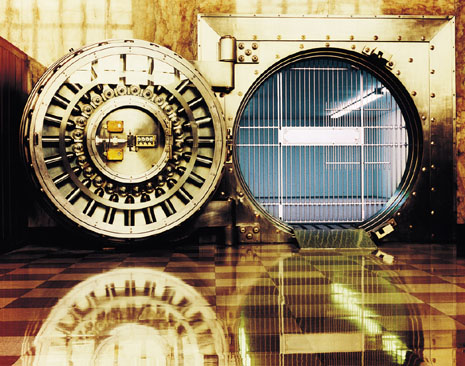Banking, finance, and taxes
Are World Markets on the Verge of Another Devastating Credit Bubble?
Published:
Last Updated:

Switzerland’s Bank of International Settlements (BIS) has warned that it is unusual and rare for asset prices to be rising as forecasters are predicting a global economic slowdown. The International Monetary Fund and the Organisation for Economic Co-operation and Development (OECD) have recently downgraded their outlooks for 2012 and 2013, with sharp cuts for much of Europe, as well as for Brazil, China and India.
Fortunately, the U.S. Treasury’s purchase of trillions of dollars of debt securities, known as quantitative easing, and the government’s trillion dollar Keynesian stimulus spending saved the United States from the economic abyss. Or did it? Despite rising voices of concern from economists around the world, asset prices have risen back to levels not seen since the beginning of the Great Recession.
“Unusually, equity and fixed income gains coincided with a weakening of the global economic outlook. In the past, falling growth forecasts have usually been associated with rising expected default rates and higher bond yields,” the bank concluded. It is not just the economic malaise in Europe that concerns the bank, as many S&P 500 companies have lowered their 2013 guidance. Plus, as yields stay mired near zero, there is rising concern that portfolio managers are once again fishing for higher yielding debt instruments to help fund future liabilities, actuarial or otherwise. This is eerily reminiscent of the period between 2006 and 2008.
What has driven this rally? In large part the BIS attributes it to the perception that the European Central Bank (ECB) has taken over a role of lender of last resort. Armed with a never-ending balance sheet, the ECB like the Fed can reduce the risk of the eurozone dissolving and prevent individual countries’ sovereign debt defaults. Fortunately, efforts by European banks to strengthen their balance sheets, add capital and lower emerging market debt exposure have helped to improve confidence. They have drastically cut cross-border exposure to sovereign debt in Greece, Italy, Ireland, Portugal and Spain (PIIGS) to just $201 billion from a trillion dollars in early 2010.
Some encouraging news out of China over the weekend indicated that after months of slow growth that has dampened commodities, that a protracted economic downturn will be avoided. The conclusion that can be drawn is that, with world economies struggling against slow growth and in some cases like Japan and areas of Europe recession, another round of overinflated asset prices could lead to another bad ending.
Lee Jackson
The last few years made people forget how much banks and CD’s can pay. Meanwhile, interest rates have spiked and many can afford to pay you much more, but most are keeping yields low and hoping you won’t notice.
But there is good news. To win qualified customers, some accounts are paying almost 10x the national average! That’s an incredible way to keep your money safe and earn more at the same time. Our top pick for high yield savings accounts includes other benefits as well. You can earn up to 3.80% with a Checking & Savings Account today Sign up and get up to $300 with direct deposit. No account fees. FDIC Insured.
Click here to see how much more you could be earning on your savings today. It takes just a few minutes to open an account to make your money work for you.
Thank you for reading! Have some feedback for us?
Contact the 24/7 Wall St. editorial team.